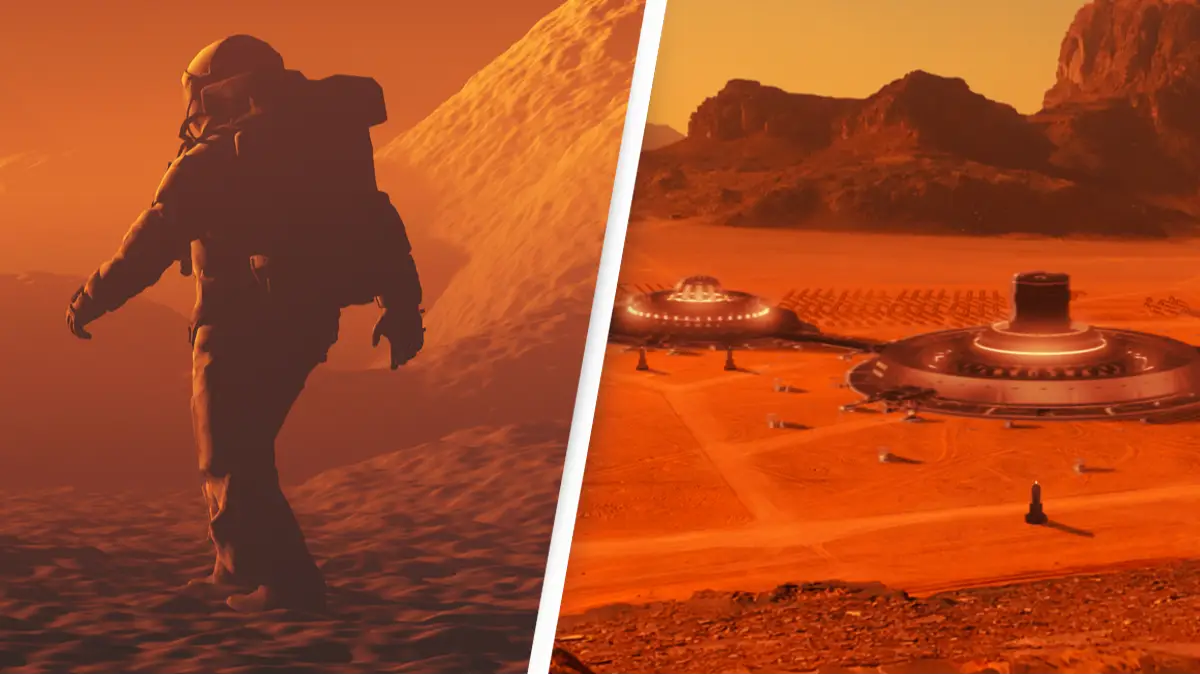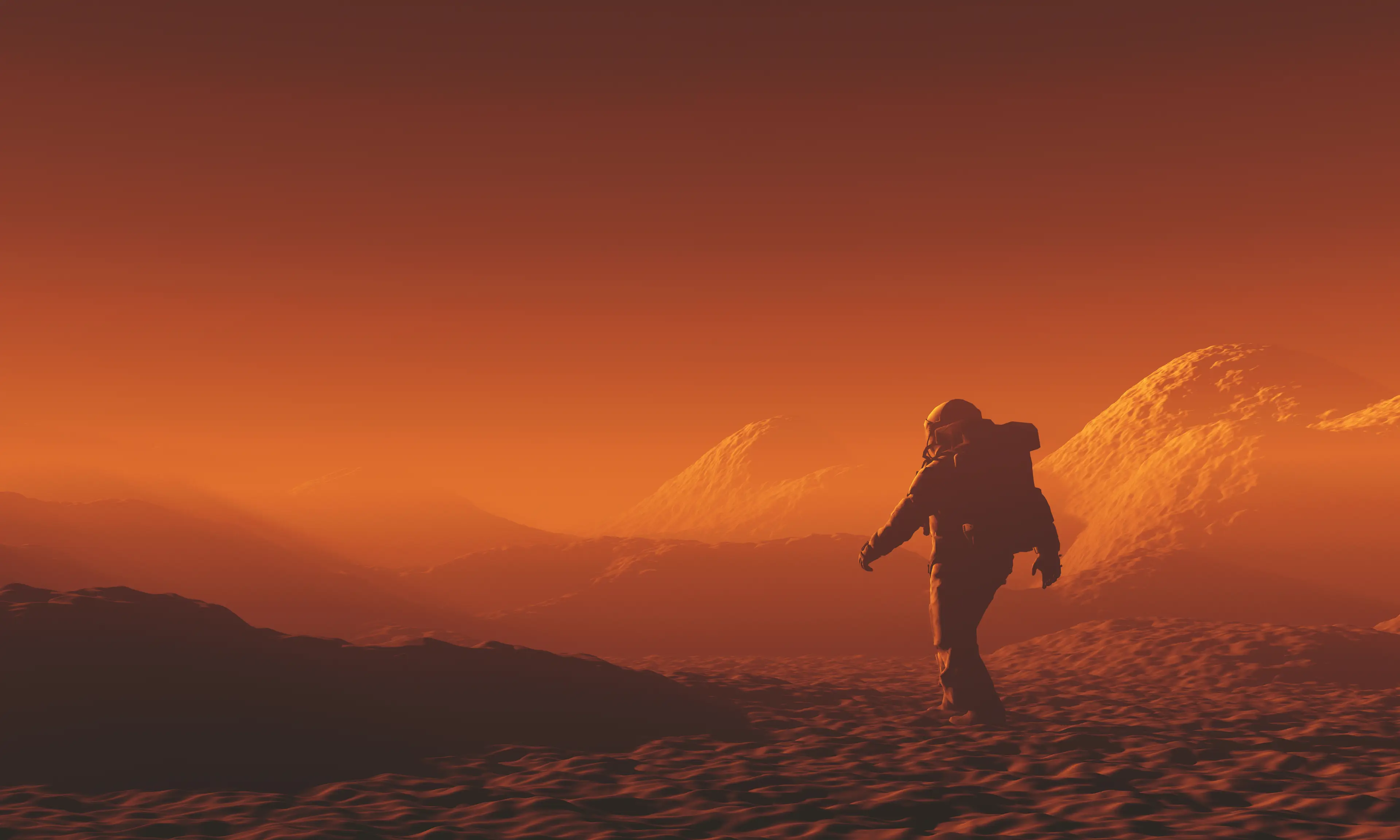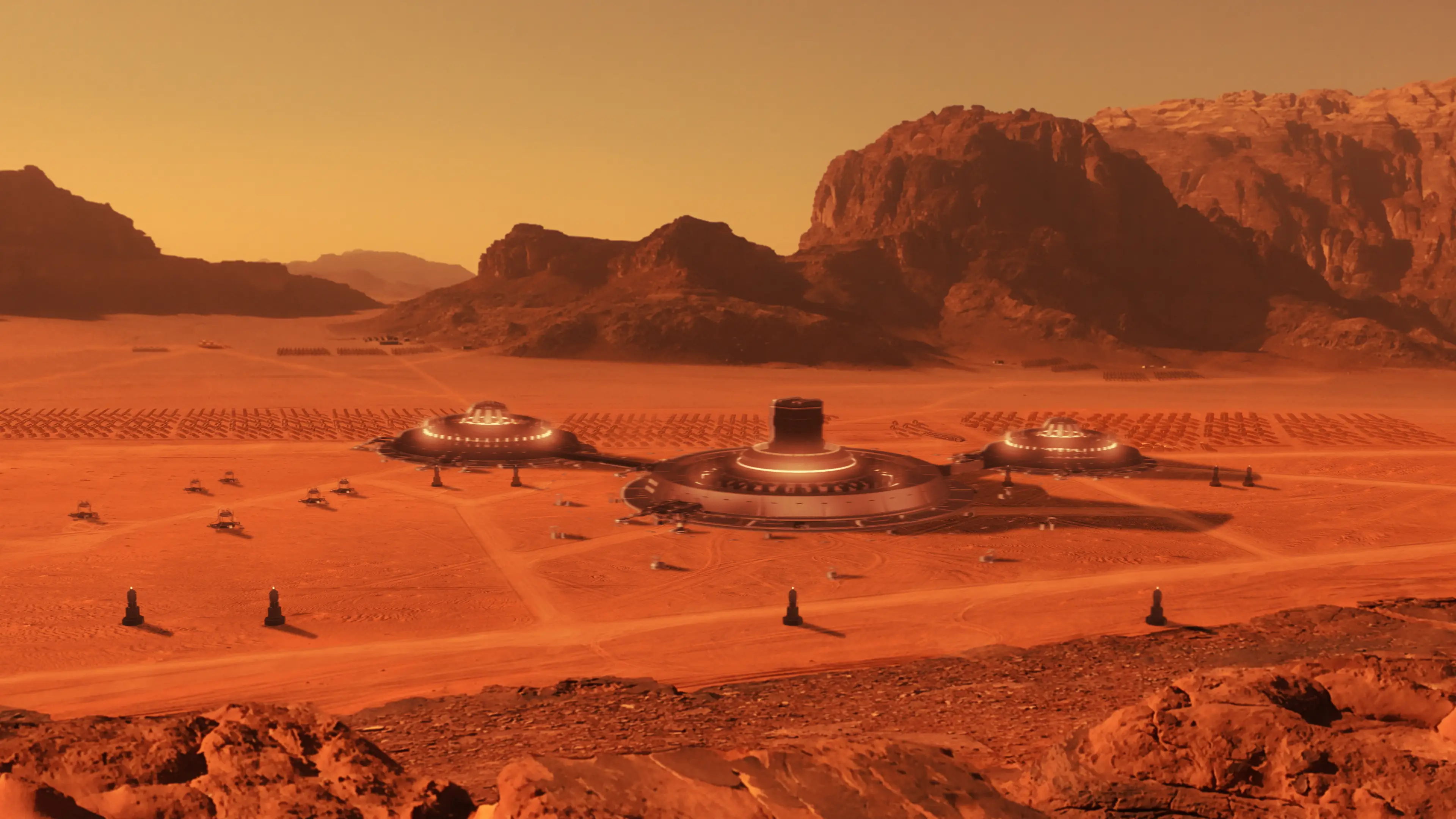
If we’re going to be stuck out in the middle of nowhere, we probably want to be with the right kind of people.
No one wants to be landed with someone who doesn’t stop talking about their cat, or someone who can’t sit still or maybe even someone who simply has no chat.
Well scientists clearly agree because believe it or not, there's actually a science to grouping people together - even when you're sending them off to another planet.
A Mars simulation has found out just what the right (and wrong) personalities are to colonize a planet.
Advert

A new study ran 28 year simulations of colonies on the planet to determine which type of residents would be best to help a settlement survive out there.
The research was published on pre-print server arXiv, however it is yet to be peer-reviewed.
The team did the study with the assumption the colony was already constructed and that food, air and water can be produced locally, as well as power being generated on the Red Planet.
It was also modelled that the colony would be getting regular supplies from Earth.
Each agent was given different attributes before being put about their working days and socialising with others.
The team explained in their paper: “Each agent is granted skills associated with their civilian and military occupational specialties consistent with NASA’s Human Factors and Behavioral Performance Element research.”
Basically, a big game of The Sims, but for scientists.
And just like we do with our little avatars, the team gave different personality types to the agents.

There’s Agreeables (low on competitiveness and aggression), Neurotics (highly competitive, aggressive and unable to cope with boredom or routine change), Reactives (have a ‘competitive interpersonal orientation’) and Socials (extroverted and need social interaction).
The simulations had different numbers of people in the colonies – with the lowest number found to be able to sustain at 22.
And it’s bad news for the neurotics, who ‘die at a much higher rate than those of other psychologies’.
The neurotics ‘suffered during life on the colony’, and the team write: “Martians with the neurotic psychology and a high coping capacity benefit the least from interaction with other Martians, and are penalized the most if they have a low coping capacity. Our results suggest that this effect is a driver of the Martian population decline, and once minimized or removed, can produce a stable settlement."
So effectively, the less people with a neurotic personality in the colony, the more people surviving on Mars.
Feeling a bit judged right about now, what about you?
Topics: Science, Space, Technology, Weird